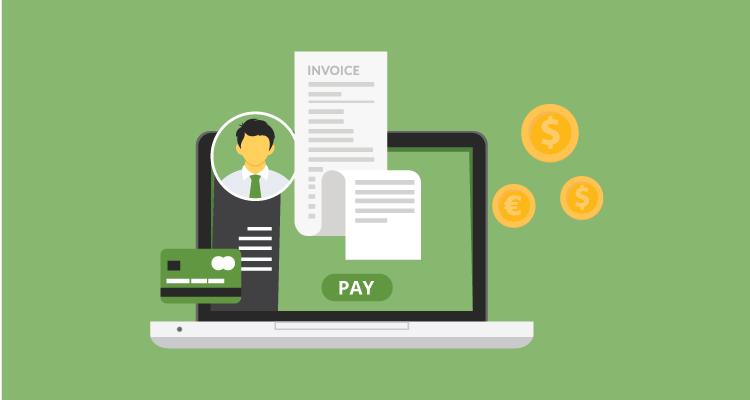Recently on the site, we discussed why your clients may want to pay for your services with a credit card. Well, there’s a flip site to that: clients who are afraid to pay invoices online.
Granted, in this day and age this is less common. Studies show that people prefer to use debit and credit cards to pay for things. However, there are still those clients who feel like giving sensitive information online is dangerous.
Table of Contents
ToggleWhy This is a Problem for Business Owners
As a business owner, one of your main concerns is cash flow. One of the ways to improve cash flow is by making it easier to pay you, usually in the form of having clients pay invoices online.
If a client doesn’t want to pay an invoice online, you run the risk of obstructing cash flow because chances are you’ll have to wait for a check. Even worse, what happens if the accounting department is behind? No one has time to wait two months for a check.
That’s why, as a business owner, you need to do the best you can in getting your clients to pay invoices online. Will all of them do it? Probably not. Some may have specific policies they need to adhere to. But, you need to get as many as possible to pay you online.
Here’s how to convince clients to start paying their invoices online so you can get your money faster and more efficiently.
Let them know that offline payments aren’t necessarily more secure.
The main objective a client will likely have against paying invoices online is feeling like it’s not safe. While cyber fraud is an issue, it’s not the only form of getting payment information. The reality is paper checks and statements can get stolen from the mail.
There’s also something to be said for security risks involved with giving your credit card in person. A 2014 WIRED article detailed several instances in which credit card information was stolen from point of sale systems from major businesses.
The article also pointed out how online transactions typically have more security measures in place than offline transactions. So in actuality, it may actually be safer for clients to pay invoices online.
Choose a payment processor with the right security measures.
Another way to calm your clients’ nerves and get them to pay invoices online is to choose a payment processor with tight security measures. For example, Due follows PCI Compliance for storing, processing and submitting credit card information.
In addition, Due uses 256-bit SSL encryption and certification from security leaders like Norton and VeriSign. This adds another layer of security so your clients can feel at peace when they pay invoices online.
The truth is your clients can’t get that if they are sending paper checks in the mail, so this should help convince them to start paying their bills online.
Final Thoughts
The main pushback business owners will run into when they try to get clients to pay invoices online is a fear of lax security measures. By using the right payment processors and making a good case with available data, you can convince them that they actually have far less to worry about when they pay you online.















